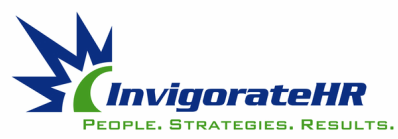 After 18 months of unrelenting change, HR professionals are burned out. HR teams have been the “invisible first responders” of the last year and a half, supporting employees through numerous crises. Unfortunately, the effects of the past year have left HR teams feeling stressed and emotionally exhausted. What human resources teams are experiencing is not quite burnout, but something similar: compassion fatigue. Compassion fatigue is a condition often experienced by people who work in the helping professions such as doctors, nurses, teachers, HR professionals, and social workers. It occurs when an individual reaches a point of diminished capacity to empathize or care about others due to the constant exposure to other's pain. The symptoms of compassion fatigue include:
 The turnover tsunami or the great resignation of 2021 is here. According to the U.S. Department of Labor, during the months of April, May, and June 2021, a total of 11.5 million workers quit their jobs. Experts are predicting that it is not over quite yet. Some are asking is it the ‘great resignation’ or the ‘great reprioritization’? It’s imperative to understand why employees are leaving and what leaders can do now. A recent article from SHRM, recommended that every organization look at the people strategy to ensure that they ask questions in three key areas: Retention. How do we take care of the people we have? What are the ways we're assessing people? Investing in them? Developing them? How are we measuring all that and making sure our best people are happy in their roles and feeling motivated and appreciated?  Nothing can be more fun and rewarding than writing a book with colleagues who challenge and inspire you to be more, do more, and learn more. That is exactly how I felt about embarking on this book journey with Jo Dee and Megan! Having worked with them for several years in driving the human resource profession to be more people focused, I was thrilled to collaborate with them to coauthor a book about JoyPowered Organizations. What is JoyPowered Organizations about? It is about people—specifically the people that make our organizations a success…and that is everyone in our workplace. In my years of interacting with leaders, I have made a point to say we cannot forget about the people who make the organization work. Without them we simply cannot exist. So why are we not focused on creating environments that encourage and value them? JoyPowered Organizations helps leaders understand why people are so important and how we can create strategies to attract, retain, develop, and promote them. Finding strong talent is increasingly more difficult—that is why we have to create workplaces where people do not want to leave, and others want to join!  Workplace safety guidelines from federal, state and local authorities are rapidly changing in response to the highly transmittable COVID-19 Delta variant, and employers may want to update their policies accordingly. Significantly, the U.S. Centers for Disease Control and Prevention (CDC) is recommending that fully vaccinated people wear masks indoors if they are in locations with high or substantial COVID-19 transmission rates. Employers may consider reinstituting mask requirements if they are in affected areas. In mid-June, the CDC reported an average of about 12,000 new COVID-19 cases each day, but the rate recently surpassed 40,000 a day on average. "An increase in the number of cases will put more strain on health care resources, lead to more hospitalizations and potentially more deaths," according to the CDC. The agency said that vaccines are the best protection against variants. June is pride month, the perfect time to talk about inclusion in the workplace. Let’s start with reason to celebrate; over the past decade, organizations have made significant strides in championing diversity in the workplace, increasing representation, and developing equitable HR policies and benefits for LGBTQIA+ employees.
Celebrating Pride with your workforce is a year-round activity and doesn’t need to be limited to Pride month in June. Prioritizing LGBTQIA+ inclusion and creating programs to support diversity in your organization are important ways to support employees, but embracing diversity and inclusion as an employer also can make you more attractive to LGBTQIA+ candidates. Plus, diverse perspectives drive innovation, creativity and foster a belief among employees that their opinions matter, which encourages them to give their best effort. Also, for companies looking to attract more gen-z candidates, it is particularly compelling to have your hiring brand positively associated with LGBTQIA+ causes. Companies that create an inclusive, supportive environment will also strengthen their reputation and their employer brand. People who feel secure in their workplace, supported by policies that engender acceptance and positivity tend to be more loyal, more focused on their jobs and less distracted and stressed. In addition, this means that the organization will function better across the board, with greater efficiency and, hopefully, better profits. Here are three ways HR can create cultures of inclusion and more positive workplaces, where everyone is free to be themselves. |
Archives
December 2024
|


 RSS Feed
RSS Feed